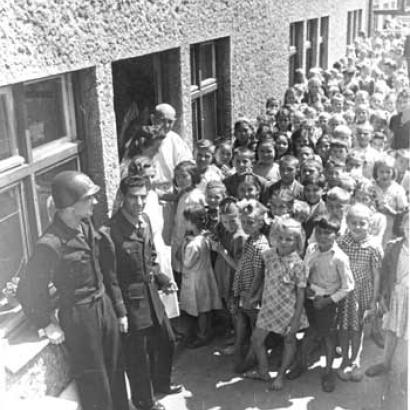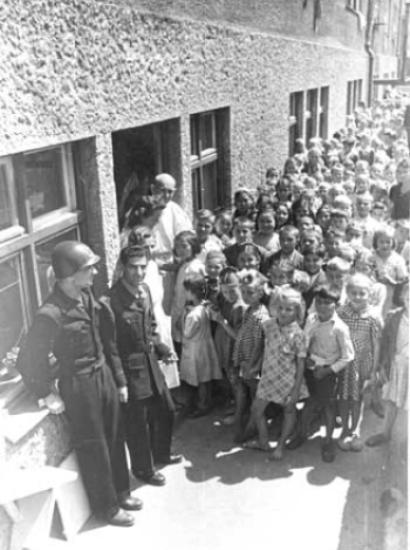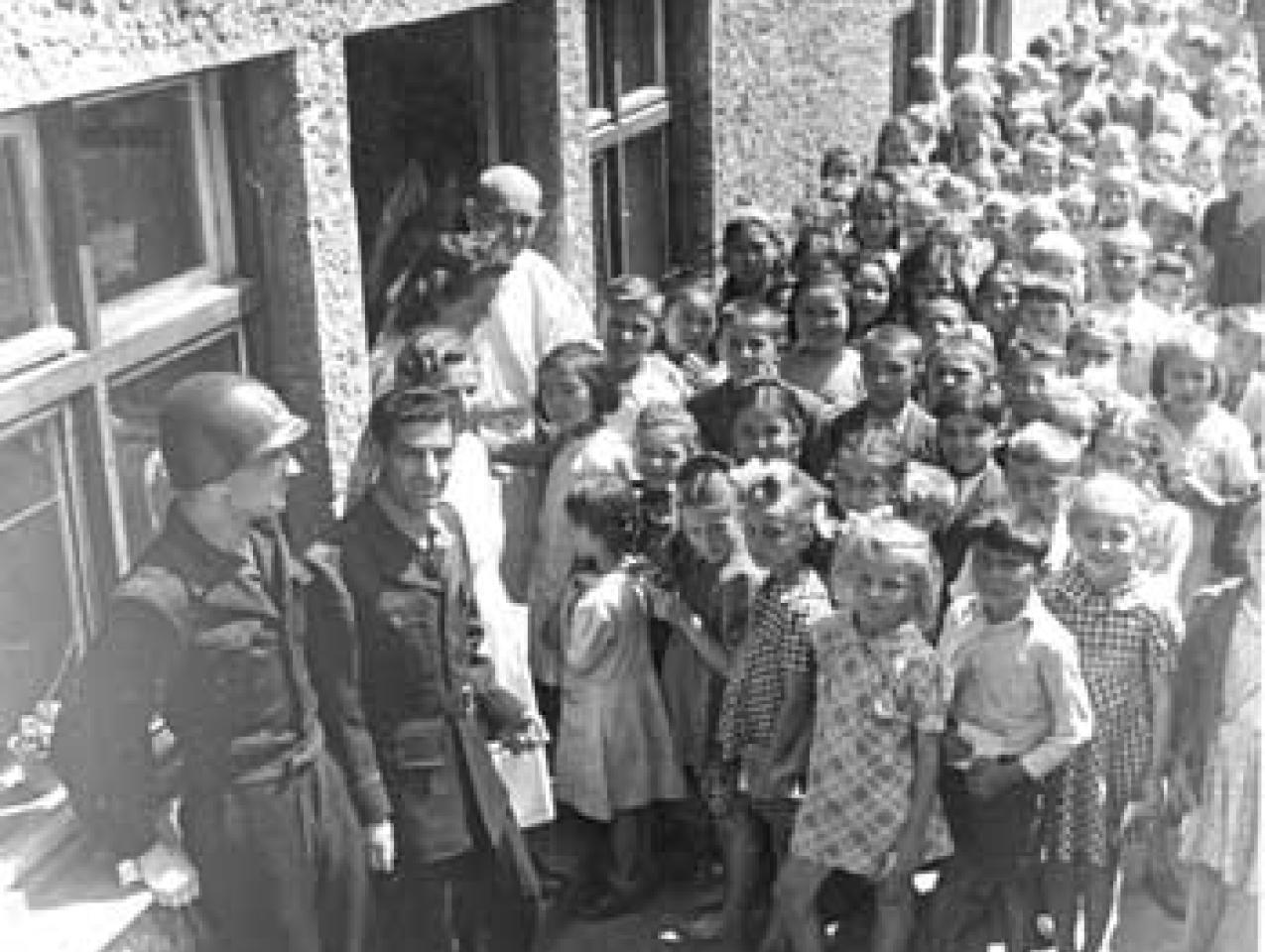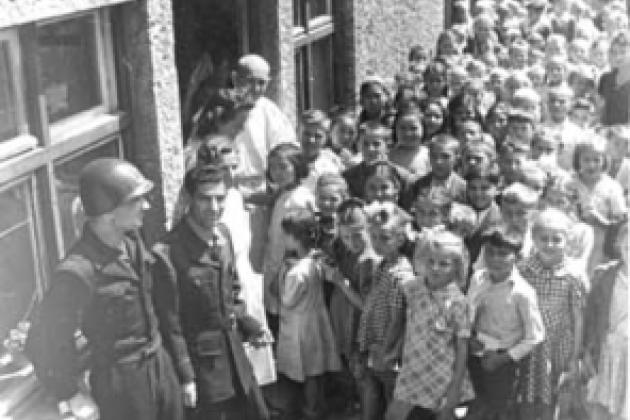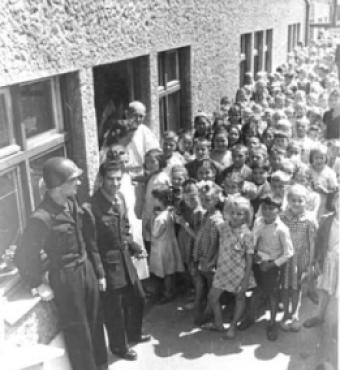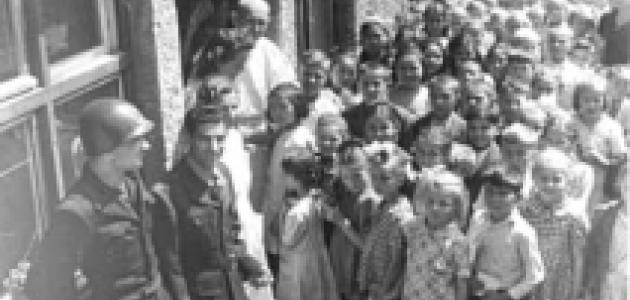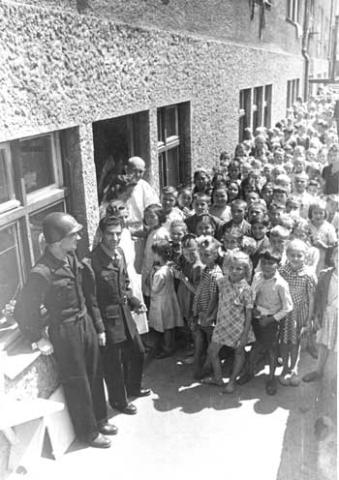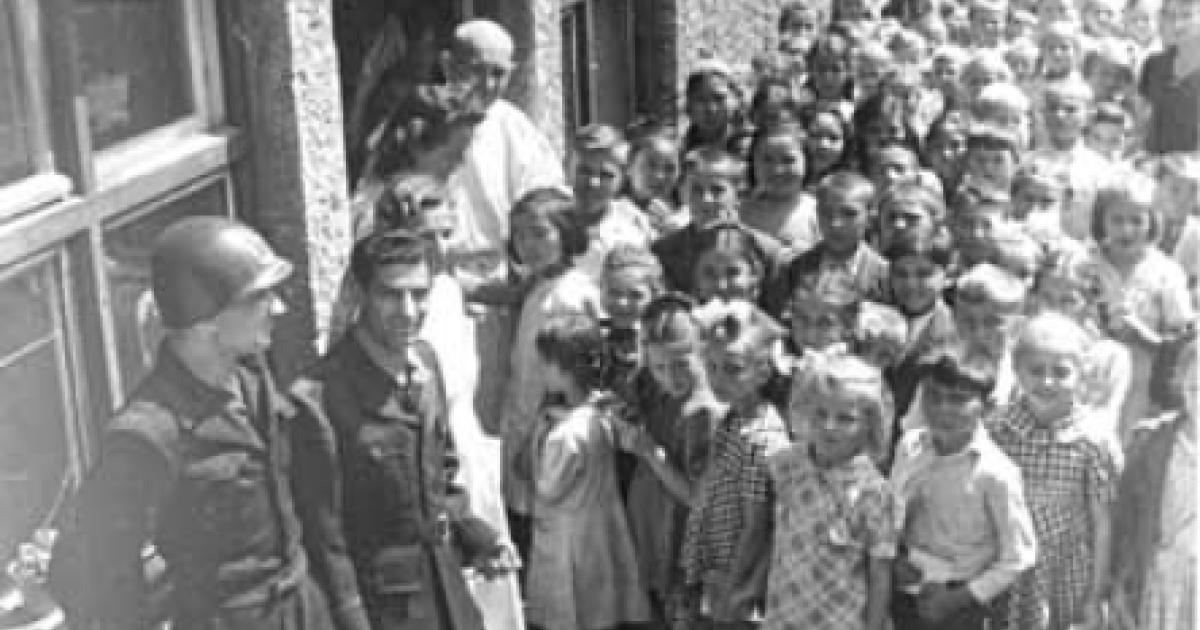The Hoover Institution Library & Archives has acquired several collections that relate to the displaced persons’ experience in Europe after the Second World War. These collections represent those who were forced to leave their home country due to war or persecution. They include personal papers, photographs, photo albums and other materials that documented the lives of families and individuals (primarily from Russia and Poland) who resided in displaced persons camps in Germany, with some immigrating to the United States.
Archaia-Grigorov-Khrushchov-Logvinov Family Papers
The Archaia-Grigorov-Khrushchov-Logvinov family papers consists primarily of personal papers, identity documents and photographs of the members of this extended Russian family. Some of the family members departed Russia at the conclusion of the civil war to settle in Yugoslavia through the end of the Second World War. Afterwards, they fled to Germany and resided in various displaced persons camps until the late 1940s, when most of the family was able to immigrate to the United States. The ration cards, travel passes, residence permits and other documents in the collection convey the experience of thousands of Russians who followed this path. They describe, in documentary form, precisely what family members had to do to survive the ordeal of double and triple exile.
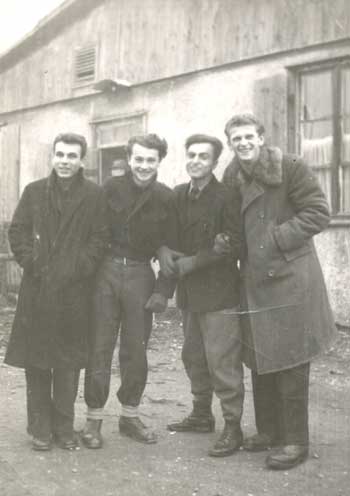
Tatiana Archaia was born in 1909 in Tbilisi (now the capital of Georgia), lived and worked in the USSR in the 1920s and 1930s and fled the country during the Second World War. Her daughter, Elena, married into the Logvinov family, whose members and relatives had found refuge earlier in Yugoslavia. They went through displaced persons camps such as Schleissheim and Freimann in Munich prior to arriving in the United States.
The family records are supplemented by photographs and newspaper clippings describing the place and events that related to their lives. Among the papers are photographs of Sergei Vladimirovich Boldyrev (1890–1957), a Cossack colonel best known for his numerous articles on Cossack history (often published in the émigré military periodical Chasovoi), and his popular booklet Ataman K.A. Bulavin, published in New York in 1957.
Svetlana Monastyrskaia Papers
Born in a Russo-Polish aristocratic family, Svetlana Monastyrskaia (née Taritsyna) lived in Poland prior to the Second World War, and thereafter in various displaced persons camps in Germany prior to immigrating to the United States, where she settled and lived out the remainder of her life. The collection contains primarily personal identification documents and genealogical records, a large number of photographs of Imperial Russian army officers during the First World War, as well as images of camp life in Germany following the Second World War. Much of the documentation relating to life in the United States is also visual, with the bulk being photographs involving her husband’s activity in a Russian émigré military cadet school alumni association, including a cadet trip to the Russian Federation in 1998 to help establish military schools there.
[Photo: A group of young men in Schleissheim Displaced Persons camp (from the Archaia-Logvinov papers, Hoover Institution Library & Archives).]
Olga Kaczmar Papers
Olga Kaczmar, as a child, was a displaced person. She created a web site devoted to information about the Displaced Persons’ camps (www.dpcamps.org), which is organized by country. The papers consist of items she collected during the course of her research, which included a set of photographs previously held by UNRRA worker Dorothy Tibble relating to the Freimann Barracks located on the outskirts of Munich. Many of these photographs depict the Ukrainian and Lithuanian national groups in that enormous camp, with some 8,000 people. Other materials relate to various camps and personal experiences within them, particularly Polish camps.
Grigorii Denisovich Ogromenko [Khromenko] Papers
Grigorii Denisovich Ogromenko (sometimes better-known under his pen name Khromenko) was an émigré journalist and participant in the Russian Liberation Army during the Second World War. While in Pskov during the war he edited the local Russian-language newspaper Za Rodinu (1943–1944). The collection consists of biographical materials, writings and photographs, many of which relate to his post-war life in the Schleissheim Displaced Persons camp (outside Munich), where he died in January 1952. While residing in that camp, Ogromenko edited one of the camp periodicals, Vesti iz efira. The papers also contain a brochure on Ludwigsfeld, where the remaining residents of the Schleissheim camp were moved following its closure.
Irina Lukianova Album
Entitled “Kempten-Füssen-Schleissheim, 1945-1948,” this album contains photographs and texts describing Irina Lukianova’s (née Malov) experience in various displaced persons camps in Germany following the Second World War. Lukianova describes the forcible repatriation that took place at Kempten in August 1945, her family’s move to a new camp in Füssen, including attendance at the camp Russian high school, and then life in the large Russian displaced persons camp established at Schleissheim. The album ends with her family’s departure for the United States in the spring of 1948.
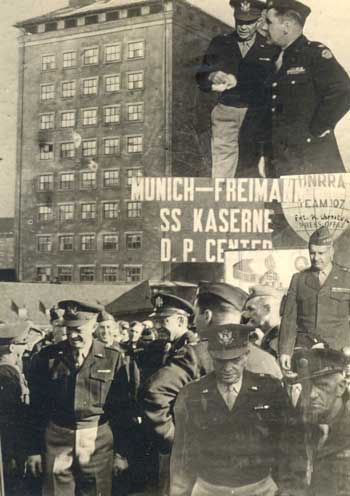
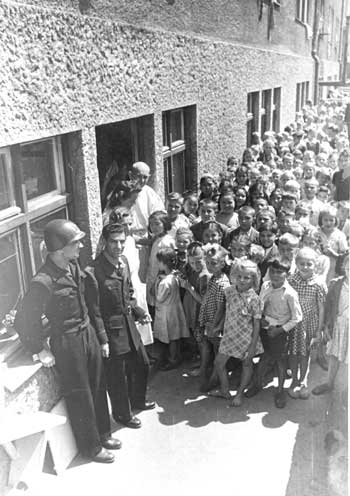
[Photos: Scenes from the Freimann Kaserne camp in Munich (Hoover Institution Library & Archives).]
Future access to these collections will be available in the Hoover Institution Library & Archives reading room. Please contact hoover-library-archives@stanford.edu for more information.




